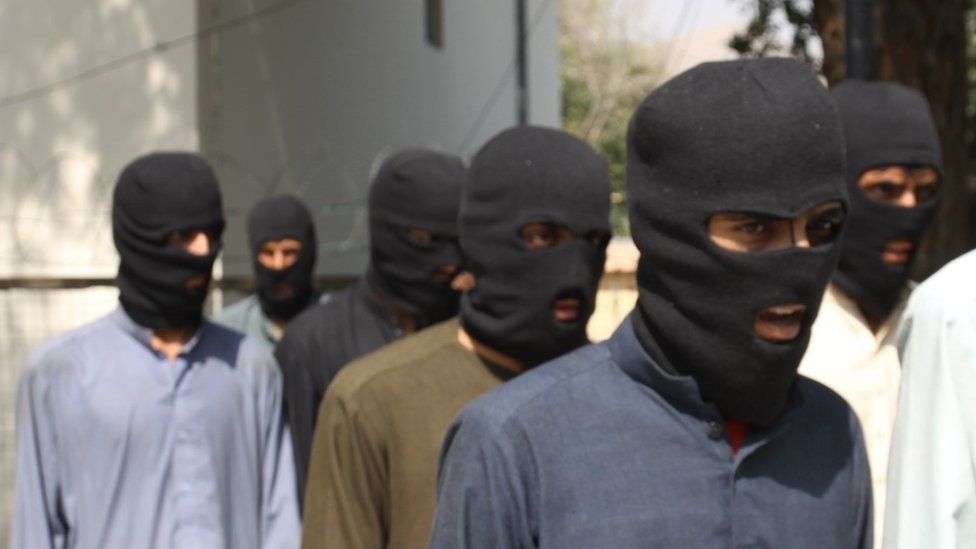BBC News 26 August 2021 - by Frank Gardner
 |
| Islamic State militants have been blamed for a series of deadly attacks in recent years - like this one on a wedding hall in Kabul in 2019 |
IS-K - or to give it its more accurate name, Islamic State Khorasan Province - is the regional affiliate of the Islamic State group that is active in Afghanistan and Pakistan.
It is the most extreme and violent of all the jihadist militant groups in Afghanistan.
It was set up in January 2015 at the height of IS's power in Iraq and Syria, before its self-declared caliphate was defeated and dismantled by a US-led coalition.
How extreme is extreme?
IS-K have been blamed for some of the worst atrocities in recent years, targeting girls' schools, hospitals and even a maternity ward where they reportedly shot dead pregnant women and nurses.
Unlike the Taliban, whose interest is confined to Afghanistan, IS-K are part of the global IS network that seeks to carry out attacks on Western, international and humanitarian targets wherever they can reach them.
Where are they located?
IS-K are based in the eastern province of Nangarhar, close to drug- and people-smuggling routes in and out of Pakistan.
At its height the group numbered about 3,000 fighters - but has suffered significant casualties in clashes with both the US and Afghan security forces, and also with the Taliban.
Are they linked to the Taliban?
Peripherally yes, via a third party, the Haqqani network.
According to researchers, there are strong links between IS-K and the Haqqani network, which in turn is closely linked to the Taliban.
The man now in charge of security in Kabul is Khalil Haqqani who has had a $5m (£3.6m) bounty on his head.
Dr Sajjan Gohel from the Asia Pacific Foundation has been monitoring the militant networks in Afghanistan for years.
He says "several major attacks between 2019 and 2021 involved collaboration between IS-K, the Taliban's Haqqani network and other terror groups based in Pakistan".
When the Taliban took over in Kabul on 15 August, the group released large numbers of prisoners from Pul-e-Charki jail, reportedly including IS and al-Qaeda militants. These people are now at large.
But IS-K have major differences with the Taliban, accusing them of abandoning Jihad and the battlefield in favour of a negotiated peace settlement hammered out in "posh hotels" in Doha, Qatar.
IS militants now represent a major security challenge for the incoming Taliban government, something the Taliban leadership shares in common with Western intelligence agencies.
